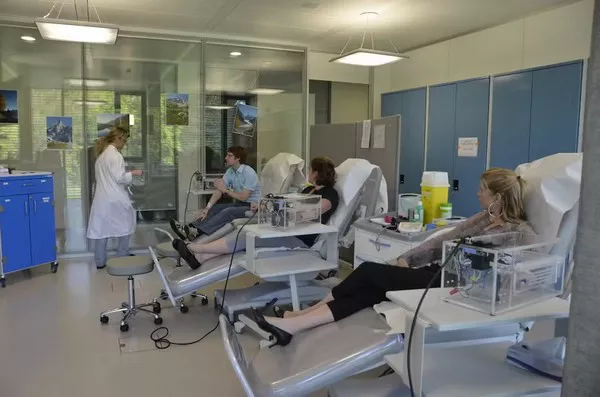When to go to the hospital for a gallbladder attack? This question is of paramount importance for individuals experiencing the excruciating pain and discomfort associated with gallbladder issues. The gallbladder, a small organ beneath the liver, plays a crucial role in the digestive process by storing bile produced by the liver. However, when this organ becomes inflamed or obstructed, it can lead to a gallbladder attack, marked by severe pain and potential complications. In this article, we will explore the signs and symptoms of a gallbladder attack and discuss when seeking immediate medical attention is absolutely essential.
Understanding the Gallbladder and its Function
Before delving into the specifics of when to go to the hospital for a gallbladder attack, it is essential to understand the normal function of the gallbladder. This small, pear-shaped organ aids in digestion by releasing bile into the small intestine to help break down fats. However, factors such as gallstones, inflammation, or infections can disrupt the normal functioning of the gallbladder, leading to intense pain and other symptoms.
See Also:How Long Can a Gallbladder Attack Last?
Recognizing the Signs of a Gallbladder Attack
Sudden and Intense Pain:
The hallmark symptom of a gallbladder attack is sudden and intense pain, typically in the upper abdomen or right side. This pain can radiate to the back and shoulder blades, making it essential to differentiate it from other abdominal issues.
Persistent Pain:
While occasional discomfort may not necessarily indicate a severe problem, persistent pain that lasts for more than a few hours could be a sign of a gallbladder issue. Chronic pain should not be ignored, as it may signify an ongoing problem that requires medical attention.
Nausea and Vomiting:
Gallbladder attacks often accompany symptoms like nausea and vomiting. If these symptoms persist or worsen, it is crucial to consider seeking medical help to prevent dehydration and assess the severity of the gallbladder issue.
Fever and Chills:
In some cases, gallbladder problems can lead to inflammation or infection, resulting in fever and chills. These systemic symptoms indicate a more severe condition that requires immediate medical evaluation.
When to Seek Emergency Care
Difficulty Breathing:
If a gallbladder attack is accompanied by difficulty breathing, it may indicate a serious complication such as inflammation affecting the diaphragm. In such cases, seeking emergency medical care is imperative.
Abdominal Distension:
Severe gallbladder issues can lead to abdominal distension, a condition where the abdomen becomes swollen and tense. This can be a sign of a critical situation that requires immediate attention.
Rapid Heart Rate:
A rapid heart rate may accompany a gallbladder attack, especially if there is an infection or inflammation. Monitoring your heart rate and seeking medical help if it becomes unusually fast is essential for a comprehensive evaluation.
Consulting a Healthcare Professional
Recurrent Symptoms:
If you have experienced previous gallbladder attacks or have a history of gallstones, any recurrent symptoms should prompt you to consult with a healthcare professional. Early intervention can help manage the condition effectively.
Diagnostic Tests:
When experiencing symptoms indicative of a gallbladder issue, diagnostic tests such as ultrasound, CT scans, or blood tests may be necessary to confirm the diagnosis. If recommended by a healthcare provider, undergoing these tests promptly can aid in determining the severity of the condition.
Conclusion
Knowing when to go to the hospital for a gallbladder attack is crucial for prompt and effective management of this painful condition. Timely intervention can prevent complications, including infections, organ damage, and systemic issues. If you or someone you know is experiencing symptoms suggestive of a gallbladder problem, do not hesitate to seek medical attention. A healthcare professional can provide a thorough evaluation, accurate diagnosis, and appropriate treatment to alleviate symptoms and promote a swift recovery.
Related Topics:
Best Fruits for Gallbladder Health
What is Good for Gallbladder Pain?
7 Natural Remedies to Relieve Gallbladder Pain


